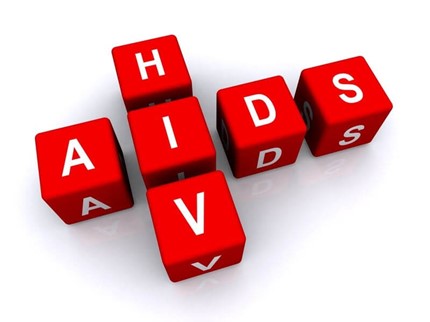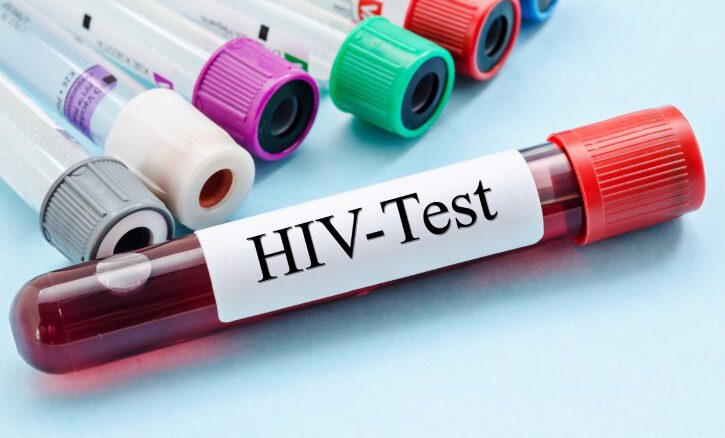
Mr Olufade Bankole is a guidance counsellor at the Eco Bank/NACA Youth Friendly Centre, Medical/Health Services, Obafemi Awolowo University, Ile-Ife, Osun State, Nigeria. He spoke extensively with Oyebola and Blessing on HIV/AIDS.
PENDULUM: It has been on the news for some time that HIV/AIDS is a killer disease and a dangerous one at that, can we know what it is with this disease?
Mr Olufade: Let’s take off with the acronyms, HIV and AIDS which gives explicitly the technical distinction between the two. HIV simply means Human Immune-Deficiency Virus. Simply put, it is a deficiency in the immune system caused by a virus while AIDS is the consequence of the presence of the virus in the body.
PENDULUM: What’s the origin of this disease?
Mr Olufade: This question has generated a lot of debate in schools of science as well as among scholars especially those handling cases of HIV. Some believe it’s a punishment from God while others believe that some persons actually slept with animals like monkeys, dogs, cows which have this virus in them. Some also ascribe its descent to man’s flesh-eating attribute. But against all these, it was officially discovered in Africa in 1986 while it was discovered in the United States in 1980.
PENDULUM: Considering that youths these days are vulnerable to it, how dangerous would you consider the virus to humans?
Mr Olufade: Well, because of the inquisitive nature of youths, there is every tendency for them to want to experiment with their youthfulness. However, I think they will have to exercise caution because of the dangerous tendencies of this infection. This is because the moment one contracts this disease, the chance of having the person survive is very bleak (let’s say 50/50). The outcome becomes dire when the person is not aware of the need for a test, the right place to go as well as who to meet. So, I think the devastating effects this disease have on one’s health are enough to make every youth meticulous with anything that can cause it.

PENDULUM: Sir, I understand that this place is the centre where HIV/AIDS tests are done Can you tell us how it all came about and why it was established in O.A.U?
Mr Olufade: During my introduction, I made you know that it’s a subsidiary to the medical and health services of the University; It’s a vision of the former president, Olusegun Obasanjo to bring HIV strategy and testing to our campuses and so when the vision came up, they decided to agree with some organizations in different cities where our campuses are located, but here in the O.A.U, the Eco bank decided to collaborate with NACA and the University to establish this place in the year 2007 and it is directly under the supervision of the Health Centre of the University.
PENDULUM: Over the years, what is the range of the students who have contracted this disease?
Mr Olufade: At the initial stage of our operation, we discovered that based on our statistics, one out of fifty was tested positive. Later, we discovered that the statistics dropped and it was probably because of two reasons; basically, because our services here are very confidential and probably those who got tested went out to tell others what their experience was. So, we are getting statistics of one out of a hundred or a hundred and twenty for the test. However, despite the fact that many people are turning up for the tests unlike before, people with higher risks are no longer responding as they used to when we started.
PENDULUM: Does that mean that there are fewer people living with the virus since the percentage is now very low?
Mr Olufade: I will not say that people who have the infection are very low. I was talking about the response of people to the test. Contrary to our expectation, those who have the highest risk to contract the disease have failed to turn up for the test. Of course, we won’t conclude that the epidemic is looming in the University except if the majority of them respond to counselling and test. It is then that we would be able to gather the correct statistics of those who are infected.
PENDULUM: How do you cope with the phobia always attached to tests for HIV/AIDS?
Mr Olufade: That was why we decided to bring our guidance and counselling programme under the umbrella of the Youth Friendly Center. We intend to change peoples’ orientation as touching the discrimination and stigmatization they may get elsewhere. That accounts for why this centre affords anybody who comes for a test with the opportunity of using its café, mini library, and game bar. So, nobody knows exactly what you come to this centre to do which is a way to able the patient conduct the test confidentially.
PENDULUM: What are the likely symptoms a victim of HIV/AIDS may have?
Mr Olufade: As I told you in the brief introduction I gave on HIV, it’s about the deficiency of the immune system caused by the presence of this virus and when it gets to the body unnoticed, what it does in the body is to start attacking the immune system and if the person doesn’t know, the virus has this dangerous tendency to reproduce itself at an exponential rate. In other words, their multiplication is not arithmetical but geometrical and if the person doesn’t know fast enough, they can reproduce themselves in the body to millions and jointly attack the immune system. If they succeed in ravaging the immune system, the person becomes naturally susceptible to what we call opportunistic infections. In other words, any disease that comes into the body that ordinary drugs would have checkmated will no longer be cured because drugs don’t really cure infections. What drugs do is to empower the immune system to fight but in the case of HIV, the immune system has been ravaged and drugs lose their efficacy. When these opportunistic infections accumulate in the body, the result is AIDS (Acquired Immune-deficiency Syndrome), the combination of several opportunistic infections present in the body. They are so-called because they have the opportunity to operate in the body without anything to checkmate them.
The consequence of the virus is that if the test is not done earlier, the person is liable to die faster and even if the person is not dead, he/she cannot still perform maximally because the virus tends to weaken the body. However, if the victim is aware at the early stage and begins to take the necessary drugs, I mean, antiretroviral (AUR) drugs, they may not particularly kill all the viruses in the body but will suppress them and render the viruses inactive. Then, the immune system will be given a boost and the infected person can at least function normally in the society.

PENDULUM: What is the fate of the dreams of anyone who has contracted the infection? Can the dreams still be achieved?
Mr Olufade: The fact that a person has been diagnosed with HIV doesn’t mean he is a living corpse, he can achieve his dreams and that is why we counsel because it’s in the course of counselling that the patient’s fears can be doused. Anybody can be infected. In fact, there are cases of virgins who have HIV and that should tell us that, it’s not only through sex that HIV can be contracted but also through ignorant usage of sharp objects like clippers and needles by males and females at their respective salons. Also, some people patronize quack doctors who transfuse them with infected blood. Moreover, there are cases of infected children whose mothers have transferred the virus to them right from the womb or at the stage of breastfeeding.
However, I tell you that you can achieve your dreams. There are cases of patients who have been living with the virus for the past fifteen years and because they realized on time, they took the necessary precautions, appropriate drugs and some already have established their NGOs creating awareness concerning HIV and at the same time, preventing the spread of the virus. And another good thing is that the person infected can even get married. Such a spouse will not be infected as well as the children.
PENDULUM: How is that possible sir?
Mr Olufade: As I said, if the person knows on time, he should start managing himself. There are two approaches to the cure for HIV. We have what we call the curative approach and the Managerial approach. In the latter, the person is aware and thus begins to manage him or herself by taking the drugs as prescribed by experts. Like I told you that the cumulative population of the virus will be low and they will not be able to reproduce any longer and the attacked immune system will also be given a boost. So if this person wants to marry, there is something we call the CD4 count. Experts know when the CD4 is high and when the chance of the virus infecting the’ other person is comparatively very low. What they do is encourage the couple to have sex at that particular time (without protection) and thus a negative man impregnates his wife who is infected and on anti-retroviral drugs. This helps prevent the spread of HIV and afterwards, they can start protecting themselves again.
PENDULUM: Please sir, can you tell us more on antiretroviral drugs?
Mr Olufade: The anti-retroviral drugs we’ve been talking about are pregnancy-friendly because not all drugs can be prescribed to a pregnant woman. But, there are combinations of ARV that a pregnant woman can take because it checkmates the advancement of the virus. These antiretroviral drugs will not allow the baby to be infected in the womb. In addition, the mother won’t be allowed to go through the normal birth process as the baby will have to be brought out through surgical operation and apart from that if the virus is much in the body, they will not allow such mother to breastfeed and thus, the baby will have to rely on supplements.
PENDULUM: What kind of food should HIV patients take?
Mr Olufade: Specifically foods rich in protein and lots of water.
PENDULUM: How can we actually deal with the issue of stigmatization as it affects victims?
Mr Olufade: We can deal with it by making more campaigns against stigmatization and discrimination giving prominence to talks on attitudinal change like I said, it could be anybody. We should learn to relate to them in an affectionate manner. The only thing one ought to do is refraining from sharing sharp objects and having unprotected sex with victims. But you can hug them, sleep together on the same bed with them, eat from the same plate and even share the same toilet facilities without being infected.
PENDULUM: Thanks for granting this interview. It has been quite educative.
Mr Olufade: You are welcome.